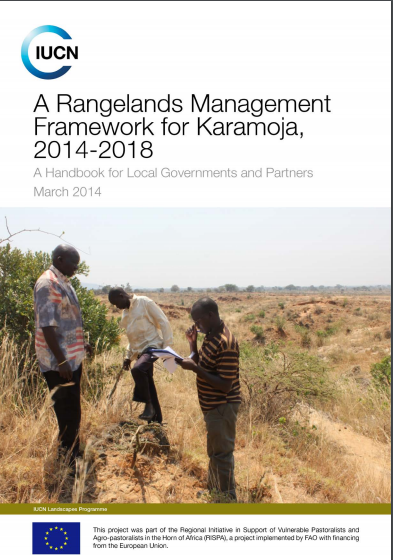Resource information
This rangelands management framework is a product of a rapid pastoralist-led rangeland health assessment that was conducted in three sampled districts of Karamoja; Moroto, Napak and Kotido. With financial support from FAO, IUCN undertook this pilot assessment and mapping using a combination of pastoralist rangeland knowledge and rapid field ground-truthing in line with FAO’s strategic Objective V: “Increase the resilience of livelihoods to threats and crises.” The assessment was part of a project whose goal is to improve preparedness and response to agriculture threats and emergencies by promoting the use of Traditional Ecological Knowledge (TEK) to guide planning and management of rangelands resources to support and build resilient pastoral livelihoods in Karamoja. This initiative builds on past and ongoing initiatives of IUCN and FAO collaboration in the Karamoja sub-region.



